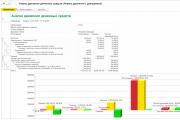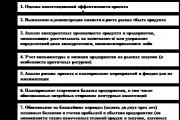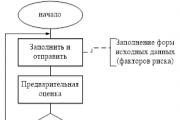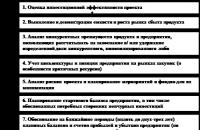Magnerot is a medicinal product that contains Magnesium salts and has beneficial influence on metabolic processes in the body, as well as the functioning of the cardiac system. Instructions for use indicate correct application and medication dosage to ensure treatment effectiveness. The article is supplemented by data on Magnerot analogues in Russia (substitutes), prices and reviews from doctors and patients.
Compound
The main active ingredient in the composition medical product Magnerot ( international name- Magnerot in Latin) - Magnesium orotate (in dihydrate form) in the amount of 500 mg per dose. Other ingredients: povidones, talc, lactose, starch, silicon dioxides, cellulose derivatives, magnesium stearates.
Release form
Magnerot is produced by Verwag Pharma (Germany) in the form of flat tablets white with the same dosage of the active substance (500 mg). In original packages of 20 or 50 tablets and official instructions.
pharmachologic effect
Pharmacological group - magnesium-based drugs for the heart, which are sources minerals in organism. The mechanism of action of the drug is ensured by the activity of Magnesium, which is part of the drug.
Pharmacological actions of Magnerot:
- regulation of cell wall permeability;
- improvement of neuromuscular impulse transmission;
- participation in providing energy processes, stimulating the production of ATP - an important source of energy for cells throughout the body. This feature of magnesium is important, including for athletes, especially those involved in weightlifting and bodybuilding;
- improvement of metabolism. Magnesium is a participant in many metabolic reactions in the body. This property of the drug is used in sports;
- normalization of the work of heart muscle cells;
- improvement of myocardial contractility;
- calming effect;
- elimination of tachycardia;
- prevention of seizures;
- reduction of pain syndrome;
- elimination of spasms and decreased smooth muscle tone;
- decreased vascular resistance;
- stimulation of general blood flow;
- decreased amount of calcium in the blood;
- improving blood supply to the heart muscle;
- decreased release of acetylcholines;
- decreased platelet aggregation;
- accelerating the restoration of damaged tissues.
Indications for use
The manufacturer has approved the following indications for use:
- diseases that are characterized by magnesium deficiency;
- myocardial ischemia (complex treatment and prevention);
- spasms of coronary vessels;
- fat metabolism disorders;
- inflammation of the walls of arteries and arterioles;
- atherosclerosis.
Important! Magnerot is a medicine used more often in the composition complex therapy(indicated in the instructions for use of the medicine).
Contraindications
Contraindications to the use of Magnerot approved in Russia are the following conditions:
- allergies, which often manifest as rashes and itching;
- children's age (up to 18 years);
- increased level of magnesium in the blood;
- urolithiasis disease. Patients who have been diagnosed with magnesium and phosphorus stones in the kidneys should be especially careful;
- decreased level of calcium in the blood;
- kidney pathologies;
- heart block;
- slow heart rate.
Instructions for use
Magnerot tablets are prescribed only orally one hour before meals. It is recommended to drink 100-200 ml of water.
Directions for use for adults: first week - 2 tablets three times a day (before lunch, lunch and after lunch). Further - at least 6 weeks (optimal course of treatment) 1 tablet twice or thrice a day.
Maximum daily dosage- 6 tablets. It is prohibited to exceed specified dose and disrupt the duration of dosage regimens.
Important! Substitutions of dosages and methods of administration are permitted only to a doctor.
Overdose
Manifestations of overdose are extremely rare. Possible consequences reception high doses Magnerot (according to the manufacturer's annotations):
- nausea, vomiting;
- muscle paralysis in the respiratory system;
- obstructions urinary tract;
- constipation;
- cardiac conduction disorders.
Help measure:
- administration of calcium preparations intravenously (over 5-10 minutes);
- hemodialysis;
- artificial respiration;
- symptomatic therapy.
Usually, medical help is required extremely rarely.
Side effects
Side effects rarely develop if the treatment regimen and prescribed doses of the drug are followed. Possible side effects Magnerot are as follows:
- allergies in the form of skin rash or itching;
- diarrhea (prolonged stool disorder requires a reduction in the dose of the drug).
Interaction with other tools
Magnerot increases the effectiveness of the following groups of drugs:
- tranquilizers;
- antiarrhythmic;
- calming;
- neuroleptics;
- hypotensive.
The combination of Magnerot with such drugs leads to a decrease in their effectiveness:
- Iron preparations;
- Sodium fluoride;
- Tetracyclines.
Magnerot prevents the development of magnesium deficiency when patients take the following drugs:
- Methotrexate;
- laxatives;
- Aminoglycosides;
- Cyclosporine;
- Cisplatin;
- diuretics;
- Amphotericin.
During pregnancy and lactation
Magnerot is allowed to be taken by women during pregnancy to treat a number of diseases. The drug penetrates into milk, but does not have any effect negative influence per child. Therefore, Magnerot is approved for use during lactation (breastfeeding). When breastfeeding while using the drug, cessation of lactation is not required.
With alcohol
Ethanol interferes with the absorption of vitamins and minerals in the intestine, so interaction of the drug with alcohol should be excluded. In descriptions of Magnerot's studies, it was established that the drug and alcohol have low compatibility; their combination is not recommended.
Analogues
Russian and imported analogues There are no Magnerots with which the drug can be replaced. All presented Magnerot analogues of Russian (cheap) and foreign production differ in their salt composition (often containing magnesium aspartate, gluconate, carbonate, lactate, sulfate or oxide). The action of drug synonyms is identical. The list of Magnerot substitutes includes the following medications:
- Biolectra Magnesium forte;
- Cormagnesin;
- Megamag.
Except specified funds magnesium is included in combined agents, which may additionally contain potassium salts, pyridoxine, acetylsalicylic acid:
Best before date
Magnerot has a shelf life of 5 years from the date of production. If the shelf life has expired, the drug should not be used.
Terms of sale and storage
Magnerot is dispensed from pharmacies without a prescription from a doctor (it is better to have the INN with you in Latin or Russian).
Storage at a temperature that does not exceed 25-30⁰С, in dry, ventilated places, protected from light and children.
special instructions
Before starting treatment, it is important to identify the cause of Magnesium deficiency in the body and begin taking measures to eliminate them.
The drug is suitable for long-term use. The course of use should last at least 1.5 months to achieve optimal effectiveness. If it is necessary to combine use with drugs whose activity may decrease, an interval of at least 3 hours should be maintained.
Use with caution in patients with lactose intolerance (lactase deficiency). Magnerot does not affect the ability to drive vehicles, machinery, or equipment.
"Magnerot" is a magnesium preparation that contains magnesium orotate dihydrate, which is necessary for carbohydrate, lipid, protein and energy metabolism, as well as for the metabolism nucleic acids. It increases resistance to stress, regulates neuromuscular excitation, which leads to inhibition of neuromuscular transmission.
Indications for use
"Magnerot" is prescribed for complex treatment patients with arrhythmia and chronic heart failure in cases where the development of diseases occurred due to magnesium deficiency, dyslipidemia, atherosclerosis, and spastic conditions.
The drug is used for prevention and, in combination with other medications, for the treatment of myocardial infarction. To eliminate magnesium deficiency and, if necessary, increase the consumption of macronutrients, Magnerot is also prescribed. The product is used for gastrointestinal diseases, chronic stress, chronic alcoholism, pregnancy, physical inactivity and insufficient magnesium content in food. "Magnerot" replenishes macronutrient deficiency resulting from therapy with oral contraceptives, corticosteroids, costeroids, insulin, muscle relaxants and diuretics.

Contraindications
- hypersensitivity to components;
- urolithiasis disease;
- renal dysfunction;
- cirrhosis with ascites;
- myasthenia gravis;
- atrioventricular block;
- severe bradycardia;
- predisposition to the formation of stones from magnesium, calcium, phosphates and ammonium;
- hypocalcemia;
- hypermagnesemia;
- galactosemia;
- glucose-galactose malabsorption syndrome;
- lactase deficiency.
The drug "Magnerot" and its analogues are not used in pediatrics this tool also not used in relation to patients under 18 years of age.

Use of the drug in accordance with the instructions
The drug is intended for internal use. For 7 days, drink 2 tablets with a small amount of liquid at a time. Magnerot is consumed 3 times daily. After one week of treatment, drink 1 tablet 2 or 3 times a day. The minimum duration of treatment is 4-6 weeks. The decision on the need for repeated courses is made by the doctor. For cramps in the calf muscles at night, drink 2-3 tablets of Magnerot in the evening. To achieve maximum possible effect The medicine should be taken 1 hour before eating.
If the next dose of the drug is missed, treatment is continued in accordance with the usual dosage regimen. The daily dose of the drug cannot exceed 3000 mg (6 tablets). If Magnerot or analogues of the drug are used together with medications containing iron, sodium fluoride, tetracycline, then it is recommended to maintain a certain interval between doses (at least 2 hours).

Possible side effects
The following side effects may occur while using the drug:
The occurrence of side effects requires contacting your doctor to adjust the treatment.
Reviews of the use of "Magnerot", its price
For patients different groups Magnerot or Magne B6, which have a similar effect, are often prescribed to replenish magnesium deficiency. The effectiveness of the drugs does not appear immediately; there are no sharp improvements, since to achieve positive result it will take some time. In their reviews of Magnerot, people usually do not report any side effects. You cannot start using the drug on your own - this is a serious remedy; only after a diagnosis has been made and treatment has been prescribed, the drug "Magnerot" can be taken. Price and reviews are often of interest to patients. A package of the drug of 20 tablets of 500 mg costs approximately 250-280 rubles.

Drugs with similar effects
If you have a magnesium deficiency, you can take Magnerot or Panangin, their effect is similar. In addition to the latter, the drug in question has other analogues:
- "Magne B6";
- "Magne B6 forte";
- "Supradin Kids Junior";
- complex "Pikovit";
- Osteocare solution;
- "Multi tabs active";
- "Magnesium Plus";
- "Magnelis";
- "Magnelakt";
- "Vitrum forte osteomag";
- "Vitrum Mag";
- "Beauty Tabs Elegant with Calcium";
- "Additive magnesium".
We found out the properties of the drug "Magnerot", analogues of the drug, now let's find out what the drugs are similar action and how they differ from the original.
What are analogues?
Analogues are means that can fight the same diseases that are treated with the help of original drug. For his correct selection A doctor's consultation is required. The specialist has enough experience to find an adequate replacement.
Drugs take a long time to develop, are tested on animals, and side effects are identified. These processes require significant financial investment and can take several years or even decades. The original drug is given a production patent, which is a guarantee that for some time, while costs are recouped, other companies will not produce it. At the same time, the drug is given a different name, under which other companies will produce it. After the patent protection expires, production of similar drugs begins.
New manufacturers do not have to spend money on developing a drug, conducting tests, all they do is use ready-made chemical formula. This is a more economical production method medicines, therefore, if you are thinking about what would be more profitable to purchase: “Magnerot” or “Magnelis” - it is clear that in in this case the latter is a more suitable option.
The manufacturer of the original drug does not publish the technology for manufacturing the drug; other companies only know the formula. Large companies where it is possible to use modern equipment and high degree cleaning from foreign impurities, unlike those made by analogues, they produce high quality products.

results laboratory research It is often shown that analogues contain impurities and dissolve more slowly or quickly than necessary, therefore, their absorption in the intestine is not complete, but partial. Due to the lack of laboratory studies, side effects may differ significantly from the effects stated in the original instructions.
If the cost of the drug is too low, you should be wary: perhaps outdated equipment was used for its production, or the manufacturer is little known, or maybe you came across a counterfeit of Magnerot. Analogs have a right to exist, but, if possible, it is better to purchase original medicines.
Magnesium, which is part of the drug, is a macroelement, an important intracellular cation. Takes part in reactions involving over 300 enzymes, in the regulation of cellular permeability and neuromuscular transmission. Magnesium is necessary for many energy processes, participates in the metabolism of proteins, fats, carbohydrates and nucleic acids, and is a natural physiological calcium antagonist. Controls normal functioning myocardial cells; takes part in the regulation of its contractile function; may reduce peripheral vascular resistance, improve coronary circulation. Along with eliminating the symptoms of magnesium deficiency, magnesium demonstrates a curare-like effect on cholinergic nerve endings by reducing the release of acetylcholine, it can inhibit platelet aggregation.
Magnesium orotate promotes tissue regeneration and takes part in the metabolic process. Moreover, the derivative orotic acid is necessary for the fixation of magnesium on ATP in the cell and the manifestation of its action, and also accelerates regeneration processes, improves the synthesis of pyrimidine bases, and the synthesis of nucleic acids.
Magnesium orotate exhibits very low level dissociation. Only after penetration into the cell is this substance broken down into components. About 55% of magnesium is in ionized form, 32% is bound to proteins, mainly albumin, α1- and β2-globulins, and 13% is found in the form of salts, mainly in the form of phosphates and citrates. About 60% of total magnesium accumulates in bone tissue, 40% is in the intracellular space and about 1% is located in the extracellular fluid. This is one of the reasons why, based on determining the level of magnesium in the blood, it is impossible to draw a conclusion about the overall balance of magnesium in the body.
90% of magnesium, which accumulates inside cells, binds to ATP in the cytosol, RNA in ribosomes and DNA in cell nuclei. A deficiency of ATP, for example, leads to loss of magnesium. Orotic acid is capable of increasing ATP content and therefore acts as a magnesium fixer in cells. As a result of metabolism, orotic acid is converted into uridine monophosphate, which is an intermediate product of pyrimidine metabolism. Magnesium is excreted in both feces and urine. It is also released through sweat. Passes into breast milk.
Indications
Magnerot is prescribed in complex treatment regimens for patients suffering from chronic heart failure and arrhythmia, which are caused by magnesium deficiency, as well as spastic conditions (including vasospasm), atherosclerosis and dyslipidemia.
This drug can be used as prophylactic and in combination with other drugs for the treatment of myocardial infarction.
Magnerot tablets can also be prescribed to patients with magnesium deficiency (including those caused by impaired intestinal absorption of magnesium) or conditions that require increased magnesium intake. In particular, magnesium orotate dihydrate is used for organ diseases gastrointestinal tract, chronic alcoholism, low magnesium content in food, physical inactivity, pregnancy, chronic stress.
Magnerot is used to replenish magnesium deficiency during therapy with diuretics, muscle relaxants, insulin, corticosteroids and oral contraceptives.
Contraindications
Magnerot is not prescribed to patients with individual intolerance to the ingredients of the drug. It is not recommended for patients with lactase deficiency, glucose-galactose malabsorption syndrome and galactosemia.
Magnerot is contraindicated in patients suffering from hypermagnesemia, hypocalcemia, urolithiasis, cirrhosis of the liver with ascites, as well as impaired renal function, atrioventricular block I-II degree and bradycardia.
The drug is not intended for use in pediatrics.
How to take Magnerot
The drug is intended for oral administration. To achieve maximum therapeutic effect It is recommended to take the tablets 60 minutes before meals. Magnerot tablets should be taken whole with a small amount of drinking water. When used simultaneously with iron preparations, tetracyclines and sodium fluoride, it is recommended to maintain an interval of at least 2 hours between taking these drugs. The duration of therapy and dose of magnesium orotate are determined by the attending physician individually.
As a rule, 2 tablets of the drug are prescribed three times a day for 1 week, after which they switch to taking 1 tablet three times a day.
The total duration of the course of taking magnesium orotate is 1-1.5 months. If necessary, the course of treatment is repeated after some time.
Patients suffering from night cramps are usually prescribed 2-3 tablets of Magnerot once a day before bedtime. Maximum recommended daily dose magnesium orotate dihydrate is 3000 mg (6 tablets of the drug Magnerot).
Magnerot during pregnancy
It is possible to use the drug during pregnancy and lactation ( breastfeeding) according to indications, since during these periods the need for magnesium increases significantly. If its content is not balanced, this can lead to serious complications, incl. miscarriage.
The use of the drug during lactation is possible if potential benefit for the mother exceeds the potential risk for the child.
Interaction with other drugs
Magnesium, which is part of the drug, with simultaneous administration complicates the absorption of iron, tetracycline and sodium fluoride. May enhance the effect of drugs that depress the central nervous system (sedatives, neuroleptics, tranquilizers), as well as antiarrhythmic, antihypertensive drugs. Reduces the severity of magnesium deficiency and reduces the risk of associated complications when taking diuretics, aminoglycosides, cisplatin, cyclosporine, amphotericin, methotrexate, and laxatives.
Overdose
When using excessive doses of the drug Magnerot, the risk of development and severity of unwanted effects caused by magnesium orotate. With a further increase in dose, the development of magnesium intoxication is possible. Magnesium toxicity rarely occurs in patients with normal renal function. In case of acute overdose of magnesium, nausea, stool disorders, vomiting, urinary tract obstruction, ventricular and atrioventricular conduction disorders, as well as paralysis may develop. respiratory system. In addition, with magnesium intoxication, a curare-like effect on neuromuscular conduction is possible.
In case of overdose, discontinuation of Magnerot is indicated. For magnesium intoxication, intravenous calcium is prescribed. With paralysis of the respiratory system, as well as dysfunction of cardio-vascular system additionally carry out resuscitation measures. Plasma magnesium levels decrease during peritoneal dialysis and hemodialysis.
Storage conditions
Store in original packaging at a temperature not exceeding 25 °C. Shelf life: 5 years. Do not use after the expiration date indicated on the package.
What can replace the drug Magnerot?
This medicine has no analogues with the same composition. After consultation with a doctor, it is possible to prescribe other magnesium preparations or vitamin-mineral complexes.
Please note that
In this medical article you can read: medicine Magnerot. The instructions for use will explain in what cases the tablets can be taken, what the medicine helps with, what are the indications for use, contraindications and side effects. The annotation presents the forms of release of the drug and its composition.
In the article, doctors and consumers can only leave real reviews about Magnerot, from which you can find out whether the medicine helped in the prevention of heart attacks, arrhythmias and atherosclerosis, to eliminate magnesium deficiency in adults and children, for which it is also prescribed. The instructions list analogues of Magnerot, prices of the drug in pharmacies, as well as its use during pregnancy.
A medicine belonging to the group of magnesium-containing drugs is Magnerot. Instructions for use indicate that 500 mg tablets are prescribed for the treatment and prevention of magnesium deficiency in the body.
Release form and composition
Magnerot is produced in the form of tablets intended for oral administration in blisters of 10 pieces, 2-3 blisters in a cardboard box, which also includes detailed instructions.
Each tablet of the drug contains 500 mg of active active ingredient– Magnesium orotate dihydrate, as well as a number of excipients.
pharmachologic effect
Magnesium is one of the most important for human body macroelements, taking part in protein, carbohydrate, lipid and energy exchanges, as well as affecting the exchange of nucleic acids. By regulating neuromuscular excitation, this macroelement can inhibit neuromuscular transmission.
The active ingredient Magnerot is a natural calcium antagonist (an antagonist is a substance that weakens the effect of another substance or has the opposite effect). It takes an active part in the contractile function of the myocardium and is necessary component, supporting the normal functioning of cardiomyocytes.
The drug Magnerot regulates the process of fixing its active substance on ATP cells. The use of the drug increases the body's resistance to stressful situations and helps improve metabolism.
Indications for use
What is Magnerot for? Tablets are prescribed for chronic heart failure or arrhythmia, which is caused by a deficiency of salts or magnesium ions in the body. Magnerot also effectively combats spastic conditions, progression of atherosclerosis, deficient arteritis, and angioedema collapse.
Magnesium salts correct dyslipidemia by reducing certain fractions of endogenous fats. Magnerot is prescribed as a means of prevention in conservative therapy coronary disease heart (angina pectoris, myocardial infarction).
Indications for the use of Magnerot can be expanded due to digestive pathologies, when magnesium in food is not absorbed in the gastrointestinal tract or conditions requiring large volumes active substance. The latter include:
Instructions for use
Magnerot is prescribed orally 2 tablets 3 times a day for 7 days, then 1 tablet 2-3 times a day daily. The duration of treatment is at least 4-6 weeks. The issue of repeated courses of treatment is decided individually.
Read also: how to take it - a close analogue of Magnerot.
Contraindications
- Renal dysfunction.
- Predisposition to the formation of calcium-magnesium-ammonium-phosphate stones.
- Age up to 18 years.
- Hypersensitivity to the components of Magnerot.
- Lactase deficiency, glucose-galactose malabsorption, lactose intolerance.
- Liver cirrhosis with ascites.
- Urolithiasis disease.
Side effects
In most cases, the drug tablets are well tolerated by patients, however, with increased individual sensitivity or exceeding the recommended dose, the following side effects may develop:
- Bloating, increased gas production.
- Stomach pain.
- Nausea, very in rare cases vomit.
- Diarrhea.
People prone to allergic reactions may develop a skin rash and hives.
Children, pregnancy and breastfeeding
It is possible to use Magnerot during pregnancy and lactation (breastfeeding) according to indications, since during these periods the need for magnesium increases significantly. If its content is not balanced, this can lead to serious complications, incl. miscarriage.
Contraindicated for children under 18 years of age.
special instructions
It should be taken into account that a lack of magnesium in the body can develop due to the following factors:
- Chronic alcoholism.
- Taking certain medications (for example, diuretics, laxatives, oral contraceptives, glucocorticosteroids, cardiac glycosides, aminoglycoside antibiotics).
- Intensive physical exercise(because of increased sweating).
- Food consumption with low content magnesium
- Diseases of the gastrointestinal tract.
- Prolonged exposure to the sun.
- Conditions requiring increased magnesium intake, including pregnancy, lactation, stress, physical inactivity.
Magnerot does not have a negative effect on the speed of reactions and the ability to concentrate.
Drug interactions
Magnerot can be used during therapy with diuretics, insulin, oral contraceptives, muscle relaxants and corticosteroids to compensate for magnesium deficiency.
Magnesium reduces the absorption of iron preparations, tetracycline and sodium fluoride. These medications should be taken at intervals of at least 2 hours.
Analogues of the drug Magnerot
Analogues are determined by structure:
- Additive Magnesium.
- Vitrum forte Osteomag.
- Magne B6.
- Pikovit Complex.
- Magne B6 forte.
- Vitrum Mag.
- Multi tabs Active.
- Supradin Kids Junior.
- Osteocare solution.
- Beauty tabs Elegant with calcium.
- Magnelact.
- Magnesium plus.
Vacation conditions and price
The average cost of Magnerot (500 mg tablets No. 20) in Moscow is 292 rubles. The drug can be bought in pharmacies without a doctor's prescription.
The optimal storage temperature for tablets should not exceed 25 degrees. The shelf life is indicated on the packaging and should not exceed 36 months from the date of manufacture. Keep away from children.
Magnerot is a metabolic ionic drug, active substance which contains magnesium salts.
Magnesium helps improve conduction nerve impulses on neurons, interactions between muscle and nerve fibers, and also prevents excess calcium entry into cardiomyocytes.
Thanks to this action, Magnerot has a positive effect on the heart, helping to reduce the load on it and improving pumping function.
Clinical and pharmacological group
Conditions for dispensing from pharmacies
Dispensed without a doctor's prescription.
Prices
How much does Magnerot cost? average price in pharmacies it is at the level of 300 rubles.
Release form and composition
Magnerot is produced in the form of tablets: round, flat, white, with a score on one side and chamfers on both (10 pieces in blisters, 2 or 5 blisters in a cardboard pack).
- Active substance: magnesium orotate dihydrate, 1 tablet – 500 mg.
Excipients: carmellose sodium, povidone K30, microcrystalline cellulose, colloidal silicon dioxide, sodium cyclamate, magnesium stearate, lactose monohydrate, corn starch, talc.
Pharmacological effect
Magnerot is a magnesium-containing drug. Magnesium is a macronutrient, necessary for many energy processes, and is involved in the metabolism of proteins, fats, carbohydrates and nucleic acids.
Magnesium takes part in the process of neuromuscular excitation, inhibiting neuromuscular transmission. Magnesium is of particular interest as a natural physiological calcium antagonist. Magnesium controls the normal functioning of myocardial cells and is involved in the regulation of myocardial contractile function. IN stressful situations is displayed increased amount free ionized magnesium, and therefore additional magnesium helps increase resistance to stress.
Magnesium deficiency leads to neuromuscular disorders (motor and sensory increased excitability, convulsions, paresthesia), mental changes(state of depression, confusion and hallucinations), cardiovascular diseases(ventricular extrasystole, tachycardia, increased sensitivity to cardiac glycosides). Magnesium deficiency during pregnancy increases the likelihood of toxicosis and premature birth. Salts of orotic acid are involved in the metabolic process. In addition, orotic acid salts are necessary for the fixation of magnesium on ATP in the cell and the manifestation of its action.
Indications for use
- Arteritis;
- Spastic conditions – pain and muscle spasms (including vasospasm);
- caused by magnesium deficiency;
- Lipid metabolism disorders.

Contraindications
Before starting drug therapy, you should consult your doctor and read the accompanying instructions. Magnerot tablets are contraindicated for use in the following conditions:
- Renal dysfunction;
- Liver cirrhosis with ascites;
- Predisposition to the formation of calcium-magnesium-ammonium phosphate stones;
- Urolithiasis disease;
- Lactase deficiency, glucose-galactose malabsorption, lactose intolerance;
- Age up to 18 years;
- Hypersensitivity to the drug.
Use during pregnancy and lactation
Magnesium deficiency in a pregnant woman can not only lead to painful cramps calf muscles, but also cause the development of preeclampsia or eclampsia, provoke spontaneous abortion or premature birth. Magnesium deficiency threatens the development of chromosomal abnormalities of the fetus or embryonic malformations. Therefore, during pregnancy, some women may be prescribed Magnerot.
The drug should be taken only as prescribed by a doctor. Indications for the use of Magnerot during pregnancy are:
- cramps of the calf muscles;
- stressful conditions;
- risk of developing preeclampsia and eclampsia;
- risk of miscarriage;
- risk of premature birth.
Dosage and method of administration
The instructions for use indicate that Magnerot tablets should be taken orally, before meals, with a small amount of liquid.
- Prescribe 2 tablets. 3 times a day for 7 days, then 1 tablet. 2-3 times/day daily. The duration of treatment is at least 4-6 weeks. If necessary, Magnerot can be used for a long time.
Side effects
Magnerot tablets are usually well tolerated, but when taken alone large doses possible dyspeptic disorders gastrointestinal tract – unstable stool, diarrhea. Complications are relieved by reducing the single dose of the drug.
Famous clinical cases when, as a result of taking medicinal magnesium allergic skin reactions developed in the form of urticaria, characteristic exanthema, hyperemic and papular rashes or skin itching. In this case, it is recommended to contact your doctor so that the dosage of the course of conservative treatment is adjusted properly.
Overdose
If kidney function is normal, then even with an overdose, magnesium intoxication develops very rarely. In all other cases, a significant excess of Magnerot in the body can cause the following symptoms:
- muscular system: signs of curare-like action;
- various gastrointestinal disorders;
- from the central nervous system: paralysis of the respiratory system, constipation, obstruction Bladder, vomiting, nausea;
cardiovascular system: poor atrioventricular conduction.
In case of drug overdose, the patient needs symptomatic treatment. Magnesium intoxication is neutralized intravenous administration calcium. The dosage of the medicine is from 100 to 200 ml. From additional funds artificial respiration, hemodialysis (intrarenal blood purification) and peritoneal dialysis (intracorporeal blood purification) are used.
special instructions
Magnerot can be used for a long time.
It should be taken into account that gastrointestinal diseases can lead to magnesium deficiency in the body; consumption food products with reduced magnesium content; playing sports (due to increased sweating); chronic alcoholism (due to decreased resorption of magnesium in the renal tubules and increased excretion of magnesium ions from the body); taking certain medications (cardiac glycosides, aminoglycoside antibiotics, oral contraceptives, diuretics, laxatives, glucocorticosteroids); conditions requiring increased magnesium intake (physical inactivity, stress, pregnancy and lactation); long stay in the sun.

Drug interactions
When taking magnesium-containing drugs simultaneously with iron, sodium fluoride and tetracyclines, absorption of the latter may decrease. Therefore, you should take medications at intervals of 2-3 hours.
Oral contraceptives, diuretics, muscle relaxants, corticosteroids, and insulin reduce the effect of the drug.























